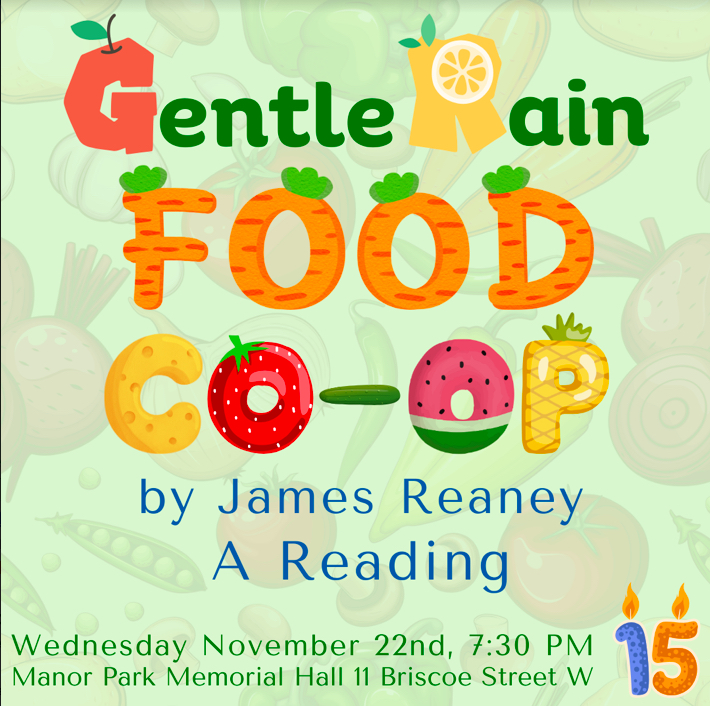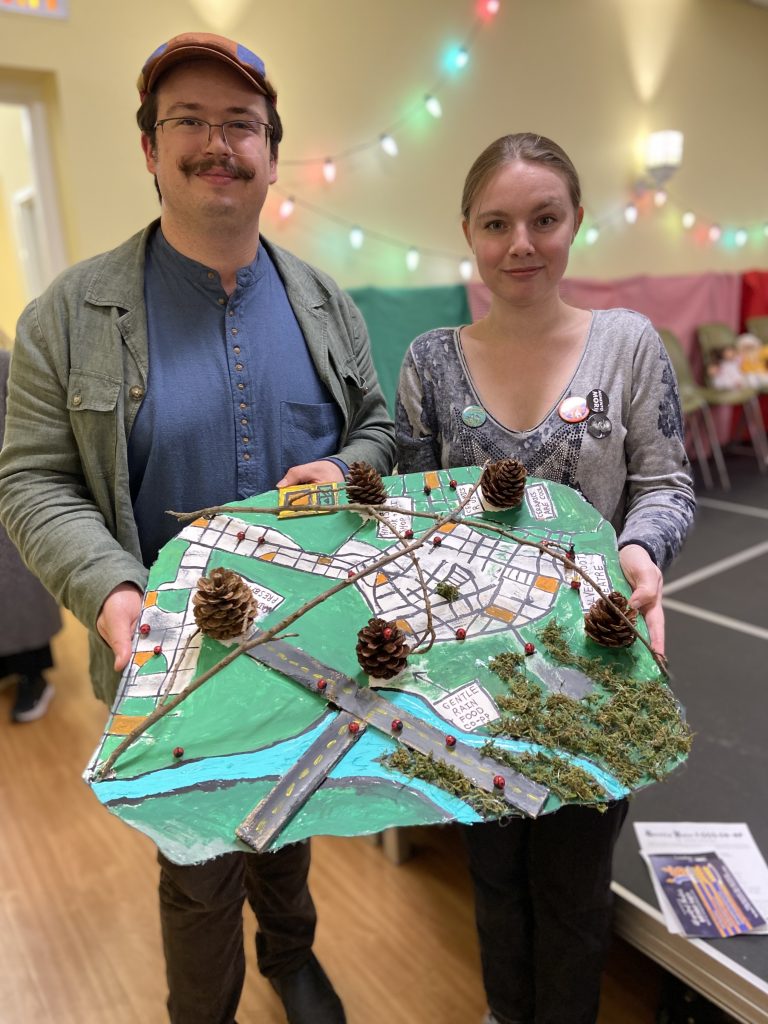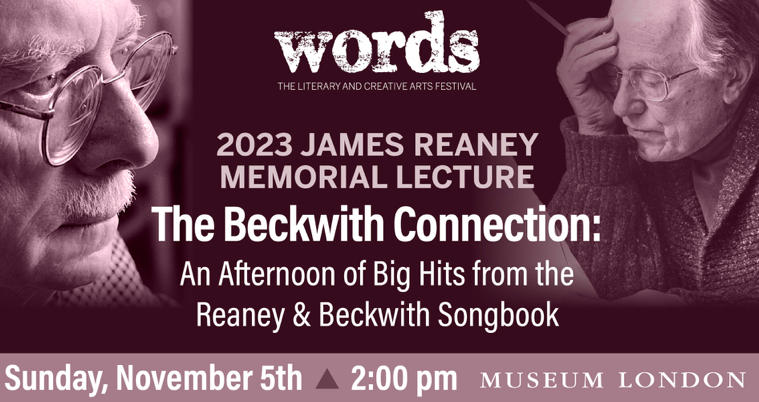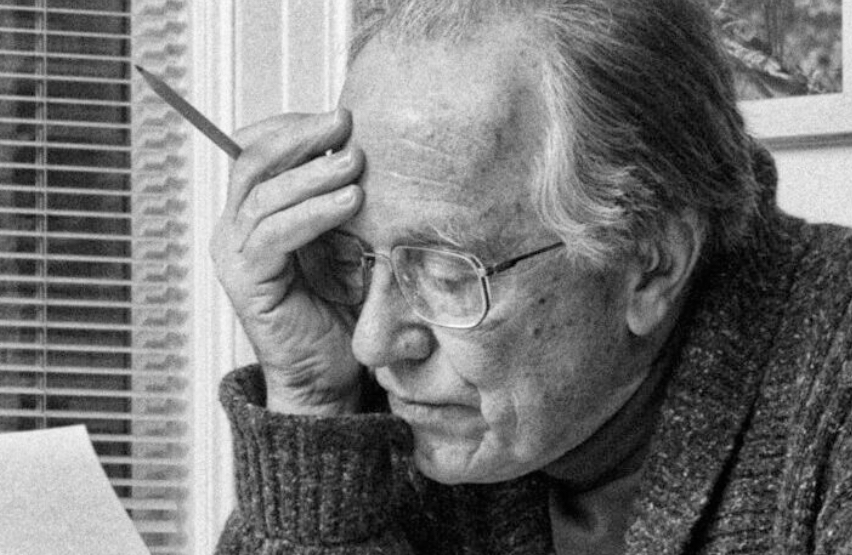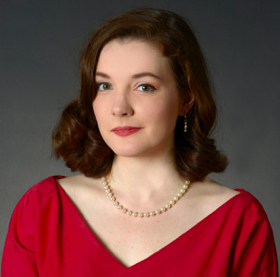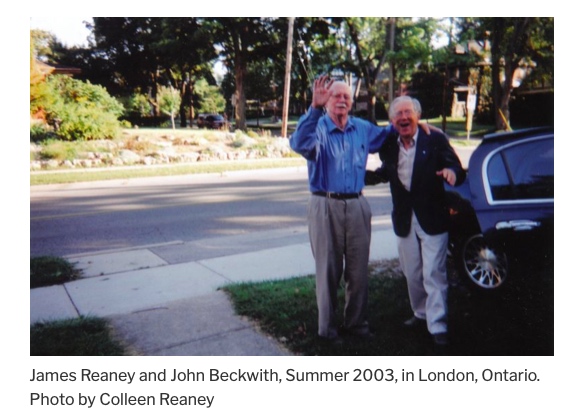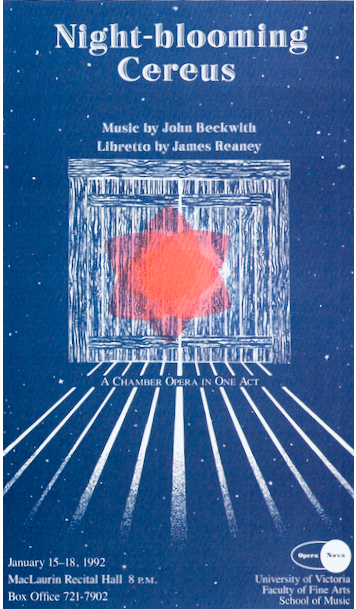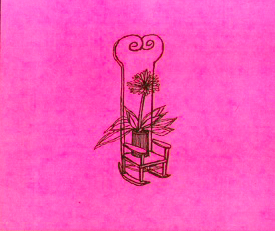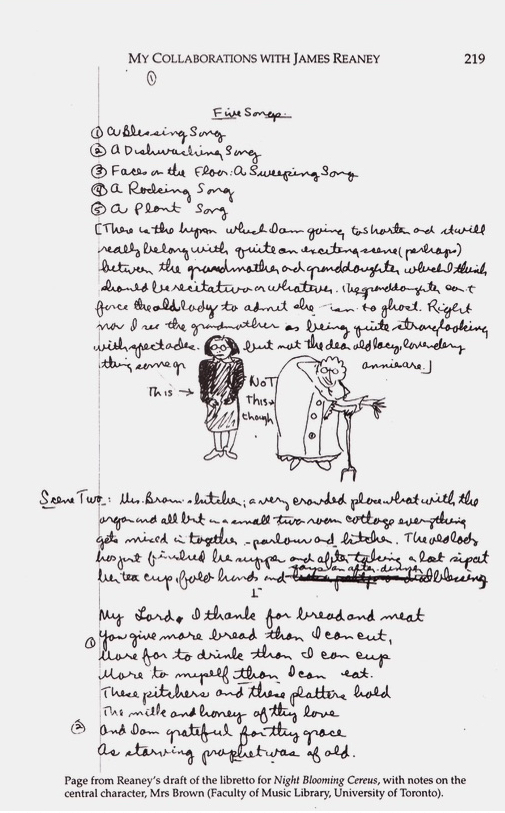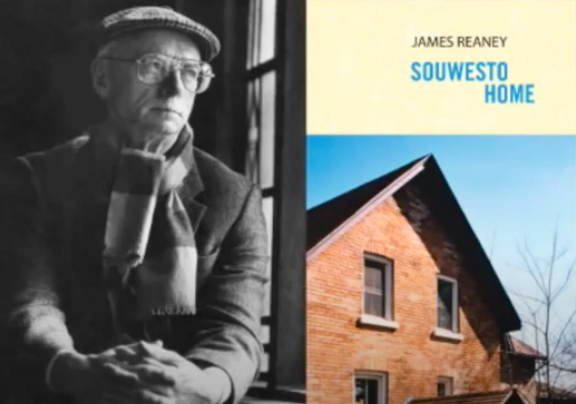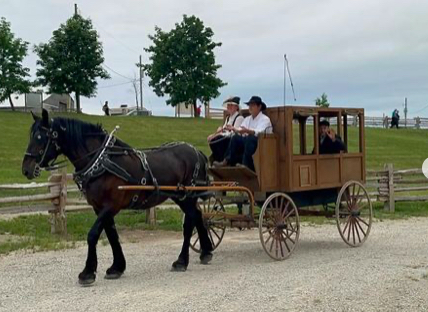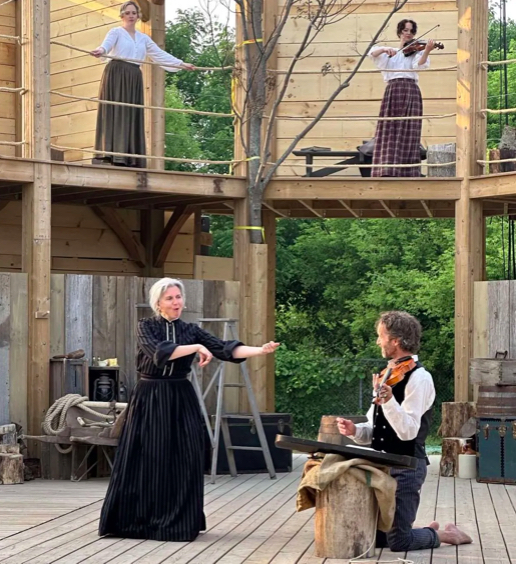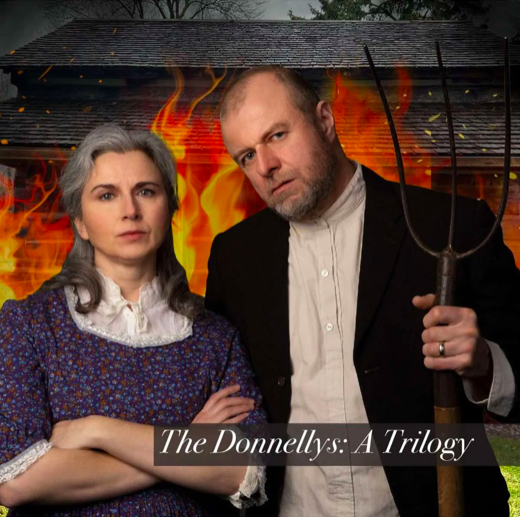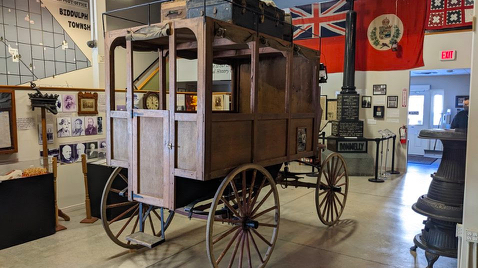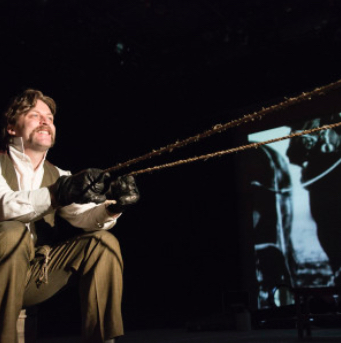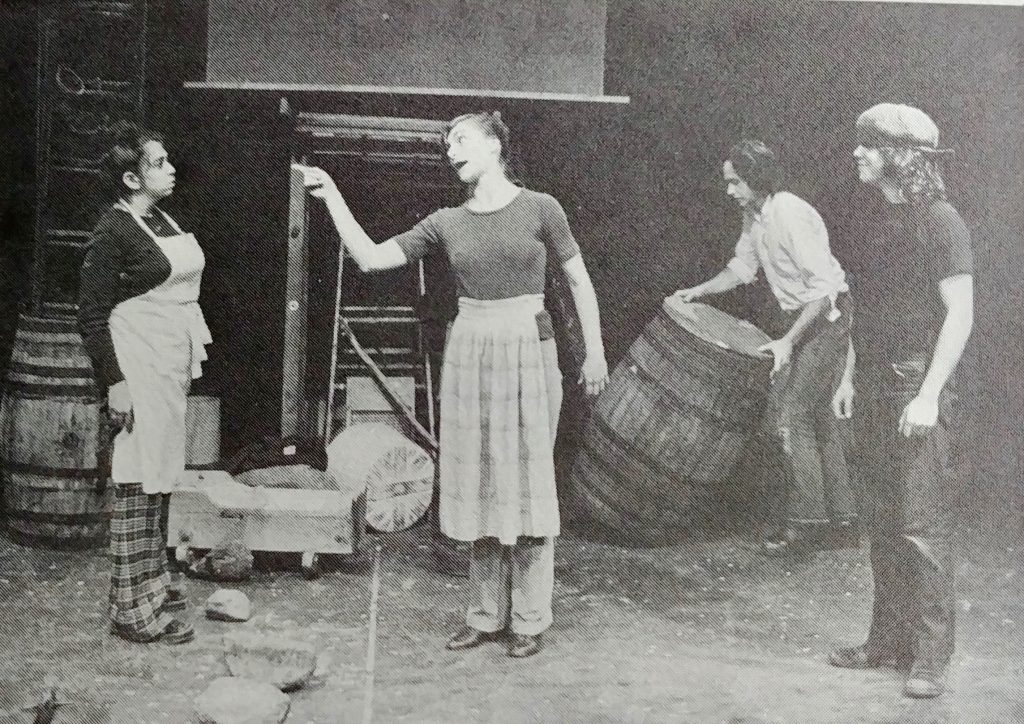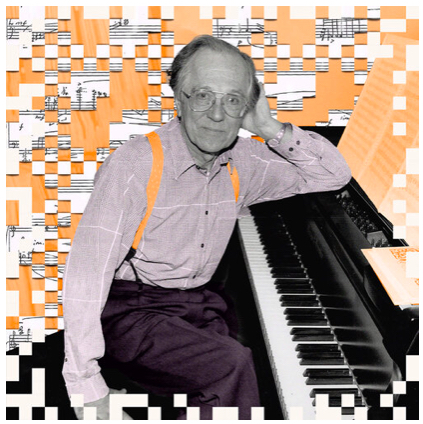Here is the Eleventh Letter from Twelve Letters to a Small Town, a suite of poems James Reaney wrote for composer John Beckwith in 1962.
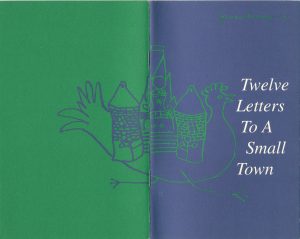
ELEVENTH LETTER — Shakespearean Gardens
The Tempest The violet lightning of a March thunderstorm glaring the patches of ice still stuck to the streets.
Two Gentlemen of Verona On Wellington St. an elegant colonel-looking gentleman with waxed white moustachioes that came to tight little points.
Merry Wives of Windsor The Ladies’ Auxiliary of the Orange Lodge marched down the street in white dresses with orange bows on them.
Richard III At last all the children ran away from home and were brought up by an old spinster who lived down the street.
Henry VIII Mr. White’s second wife was the first Mrs. Brown and the first Mrs. White was the second Mrs. Brown.
Troilus & Cressida “Well, I haven’t been to that old Festival yet but since it began I’ve had ten different boyfriends.”
Titus Andronicus Young Mr. Wood to-day lost his right hand in an accident at the lumber yards.
Romeo & Juliet Romeo & Juliet Streets.
Timon of Athens Old Miss Shipman lived alone in a weatherbeaten old cottage and could occasionally be seen out on the front lawn cutting the grass with a small sickle.
Julius Caesar Antony wore a wrist watch in the Normal School production although he never looked at it during the oration.
Macbeth Principal Burdoch’s often expressed opinion was that a great many people would kill a great many other people if they knew for certain they could get away with it.
Hamlet A girl at the bakery took out a boat on the river, tied candlesticks to her wrists and drowned herself.
King Lear Mr. Upas was a silver haired cranky old individual who complained that the meat was too tough at the boarding house.
Othello At the edge of town there stood a lonely white frame building—a deserted Negro church.
The Merchant of Venice When my cousin worked for the Silversteins she had her own private roll of baloney kept aside in the refrigerator for her.
Henry V The local armouries are made of the usual red brick with the usual limestone machicolation.
Twelve Letters to a Small Town was first published in 1962 by the Ryerson Press. In the Afterword to the 2002 facsimile edition, James Reaney wrote that after it was published, “Many Stratford residents said they saw on paper for the first time their memories of the town and wrote to me to say so.”
Among the shows currently on at the Stratford Shakespeare Festival in Stratford, Ontario are Twelfth Night, Romeo and Juliet, and Cymbeline.

